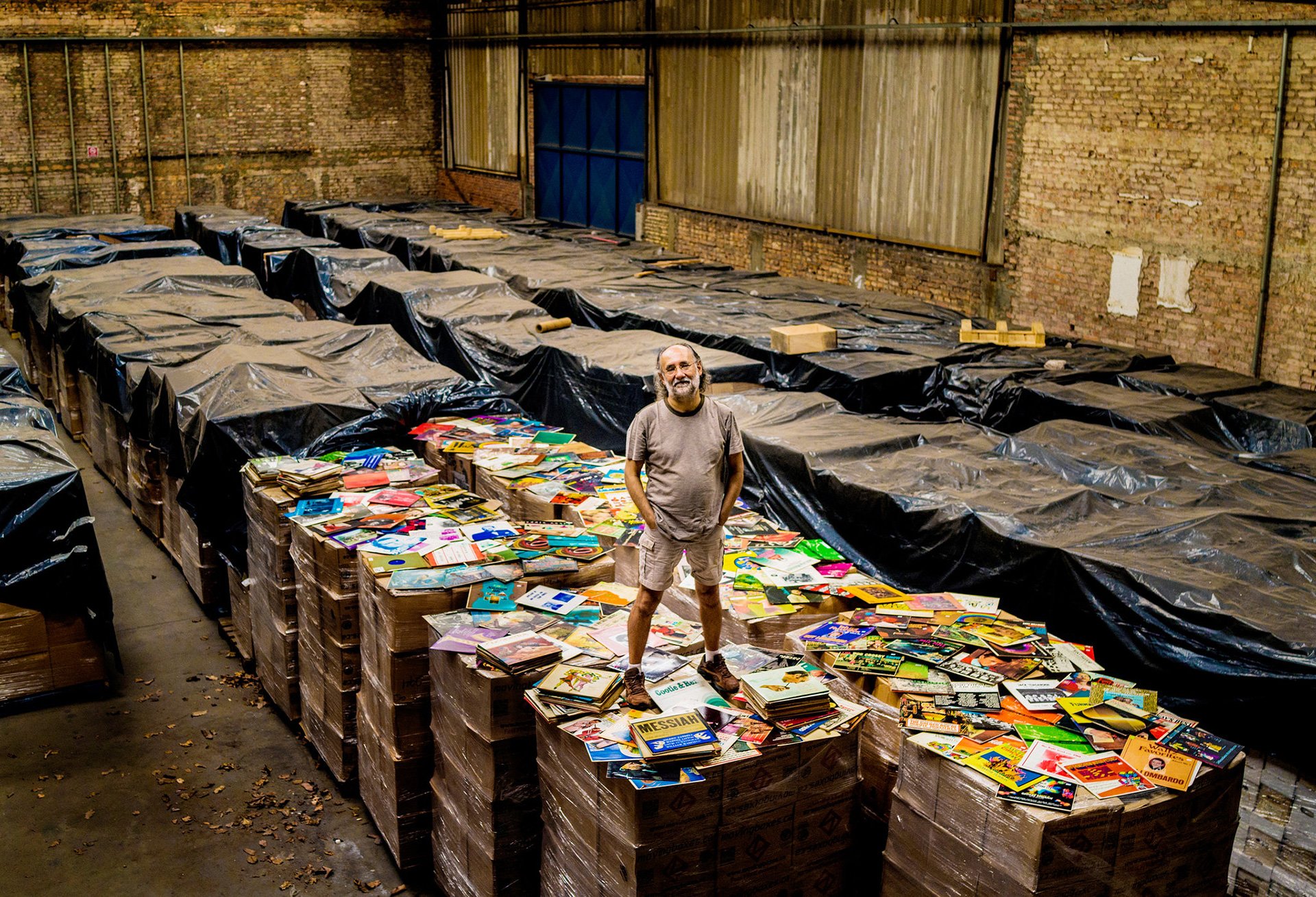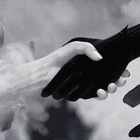The combined collection of a bunch of crate-digging globetrotters, this striking new vinyl library in Seoul boasts over 10,000 records. New and popular records rub shoulders with essential classics and sought-after rarities, including a copy of Sex Pistols’ “God Save the Queen” as well as the infamous “butcher cover” edition of The Beatles’ “Yesterday And Today”.
The Brazilian Bus Magnate Who’s Buying Up All the World’s Vinyl Records

Brazilian bus magnate Zero Freitas, who has been buying up vinyl record collections for years. The total number of albums in his collection no one really knows, and he told New York Times Magazine it was around "several million albums."
Paul Mawhinney, a former music-store owner in Pittsburgh, spent more than 40 years amassing a collection of some three million LPs and 45s, many of them bargain-bin rejects that had been thoroughly forgotten. The world’s indifference, he believed, made even the most neglected records precious: music that hadn’t been transferred to digital files would vanish forever unless someone bought his collection and preserved it.
Mawhinney spent about two decades trying to find someone who agreed. He struck a deal for $28.5 million in the late 1990s with the Internet retailer CDNow, he says, but the sale of his collection fell through when the dot-com bubble started to quiver. He contacted the Library of Congress, but negotiations fizzled. In 2008 he auctioned the collection on eBay for $3,002,150, but the winning bidder turned out to be an unsuspecting Irishman who said his account had been hacked.
Then last year, a friend of Mawhinney’s pointed him toward a classified ad in the back of Billboard magazine:
RECORD COLLECTIONS. We BUY any record collection. Any style of music. We pay HIGHER prices than anyone else.
That fall, eight empty semitrailers, each 53 feet long, arrived outside Mawhinney’s warehouse in Pittsburgh. The convoy left, heavy with vinyl. Mawhinney never met the buyer.
Just weeks before, Murray Gershenz, one of the most celebrated collectors on the West Coast and owner of the Music Man Murray record store in Los Angeles, died at 91. For years, he, too, had been shopping his collection around, hoping it might end up in a museum or a public library. “That hasn’t worked out,” The Los Angeles Times reported in 2010, “so his next stop could be the Dumpster.” But in his final months, Gershenz agreed to sell his entire collection to an anonymous buyer. “A man came in with money, enough money,” his son, Irving, told The New York Times. “And it seemed like he was going to give it a good home.”
In an office near the back of his 25,000-square-foot warehouse in São Paolo, Zero Freitas, 62, slipped into a chair, grabbed one of the LPs stacked on a table and examined its track list. He wore wire-rimmed glasses, khaki shorts and a Hard Rock Cafe T-shirt; his gray hair was thin on top but curled along his collar in the back. Studying the song list, he appeared vaguely professorial. In truth, Freitas is a wealthy businessman who, since he was a child, has been unable to stop buying records.
His compulsion to buy records, he says, is tied up in childhood memories: a hi-fi stereo his father bought when Freitas was 5 and the 200 albums the seller threw in as part of the deal.
After studying music composition in college, he took over the family business, a private bus line that serves the São Paulo suburbs. By age 30, he had about 30,000 records. About 10 years later, his bus company expanded, making him rich. Not long after that, he split up with his wife, and the pace of his buying exploded.
Recently, Freitas hired a dozen college interns to help him bring some logic to his obsession. For the truly compulsive hobbyist, there comes a time when a collection gathers weight — metaphysical, existential weight.
The interns can collectively catalog about 500 records per day — a Sisyphean rate, as it happens, because Freitas has been burying them with new acquisitions. Between June and November of last year, more than a dozen 40-foot-long shipping containers arrived, each holding more than 100,000 newly purchased records. Though the warehouse was originally the home of his second business — a company that provides sound and lighting systems for rock concerts and other big events — these days the sound boards and light booms are far outnumbered by the vinyl.
Many of the records come from a team of international scouts Freitas employs to negotiate his deals. They’re scattered across the globe — New York, Mexico City, South Africa, Nigeria, Cairo.


























